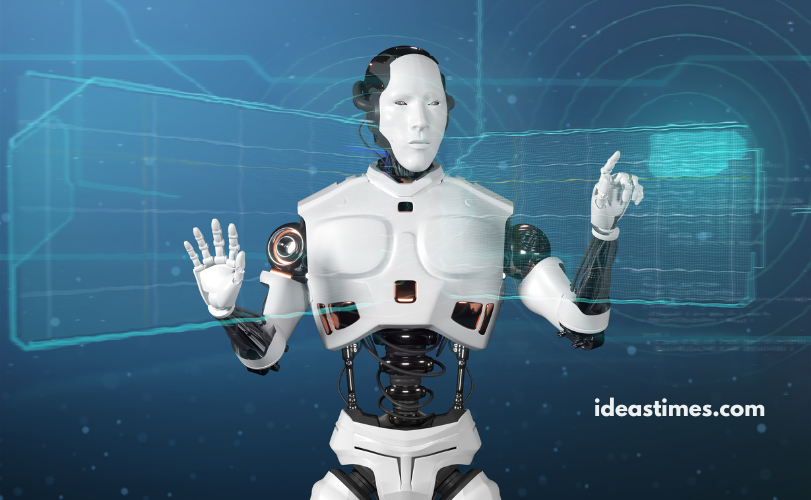AI future applications are set to revolutionize various sectors in 2024. As technology evolves, AI Future Applications will introduce new possibilities and innovations. Businesses and individuals alike need to stay informed about these emerging trends to harness their full potential. Staying ahead of these trends will provide a competitive advantage in an increasingly digital world. Here are the key trends in AI future applications to watch for in 2024.
1. Advanced Natural Language Processing
Natural language processing (NLP) is reaching new heights. AI Future Applications will see NLP systems that understand and generate human-like text with even greater accuracy. These advanced systems will enable more intuitive interactions between humans and machines. With enhanced NLP, communication barriers between different languages and dialects will also diminish. Businesses will leverage these capabilities for improved customer service and streamlined operations. NLP advancements will drive significant improvements in translation, content creation, and virtual assistants.
2. AI-Driven Personalization
Personalization is becoming increasingly sophisticated with AI. AI Future Applications will focus on delivering highly customized experiences across various platforms. AI algorithms will analyze user behaviour and preferences to provide tailored recommendations. These personalized experiences will not only boost user satisfaction but also increase conversion rates. This level of personalization will enhance user engagement and satisfaction. Expect to see more personalized marketing strategies, product recommendations, and content delivery in 2024.
3. Autonomous Systems and Robotics
Autonomous systems and robotics are evolving rapidly. AI Future Applications will include more advanced autonomous vehicles and robotics that can perform complex tasks. These technologies will transform industries such as manufacturing, logistics, and transportation. Autonomous systems will also play a crucial role in addressing labour shortages and improving operational efficiency. Autonomous systems will improve efficiency and safety while reducing human intervention. Robotics will continue to advance in areas like healthcare, where they will assist in surgeries and patient care.
4. AI-Powered Healthcare Innovations
Healthcare is set to benefit significantly from AI. AI Future Applications in healthcare will include more precise diagnostic tools and personalized treatment plans. AI will analyze medical data to predict health issues and recommend preventive measures. Additionally, AI will enhance drug discovery processes and expedite clinical trials. Innovations like AI-driven imaging and remote monitoring will enhance patient care. The integration of AI in healthcare will lead to more effective treatments and improved health outcomes.
5. Enhanced Cybersecurity Solutions
Cybersecurity is a growing concern, and AI is poised to play a crucial role. AI Future Applications will include advanced cybersecurity solutions that can detect and respond to threats in real time. AI algorithms will analyze patterns to identify potential vulnerabilities and prevent attacks. These solutions will also adapt to evolving threats, ensuring ongoing protection. These enhanced solutions will protect sensitive data and secure digital infrastructures. Expect more robust and adaptive cybersecurity measures to emerge in 2024.
6. AI in Environmental Sustainability
AI is making strides in environmental sustainability. AI Future Applications will focus on using AI to tackle climate change and environmental issues. AI will analyze environmental data to optimize energy use and reduce waste. This will lead to more efficient resource management and conservation efforts. Technologies such as smart grids and AI-powered climate models will contribute to a more sustainable future. AI’s role in environmental sustainability will become increasingly important as we address global challenges.
7. Ethical AI and Governance
As AI technologies advance, ethical considerations become paramount. AI Future Applications will include efforts to address ethical concerns and establish governance frameworks. Ensuring that AI systems are fair, transparent, and accountable will be crucial. Collaborative efforts between stakeholders will drive the development of comprehensive AI ethics guidelines. Discussions around AI ethics and regulation will shape the development and deployment of AI technologies. The focus on ethical AI will help build trust and ensure responsible innovation.
Conclusion
AI future applications are set to bring transformative changes across various sectors in 2024. From advanced NLP and personalized experiences to autonomous systems and healthcare innovations, these trends will shape the future of technology. Keeping abreast of these trends will be essential for leveraging AI’s potential and driving forward innovation. As AI continues to evolve, its applications will offer new opportunities and challenges, making it crucial to embrace and adapt to these emerging trends.


